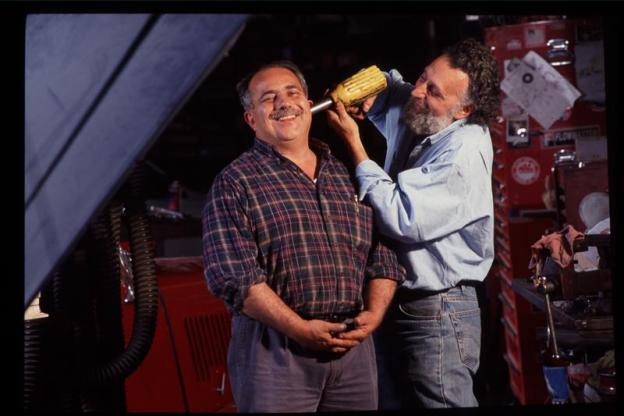 After 35 years on the air, the hosts of the NPR car advice show Car Talk are hanging up their microphones. From their Boston-area studio, brother Tom and Ray Magliozzi, also known as “Click and Clack, the Tappet Brothers” spent 35 years putting a humorous spin on car maintenance. The brothers will not record any more episodes, but the show will continue in syndication.
After 35 years on the air, the hosts of the NPR car advice show Car Talk are hanging up their microphones. From their Boston-area studio, brother Tom and Ray Magliozzi, also known as “Click and Clack, the Tappet Brothers” spent 35 years putting a humorous spin on car maintenance. The brothers will not record any more episodes, but the show will continue in syndication.
The stagnant economy and proliferation of digital media have claimed their share of victims, but Car Talk faced a much more serious problem: laziness. In a letter titled “Time to Get Even Lazier,” the brothers announced their retirement effective this October. Tom turns 75 this year, and Ray is 63. “So,” Ray said, “we can finally answer the question, if my brother retired, how would we know?”
When the brothers were more motivated, they would answer listeners’ questions; everything from whether a t-boned Subaru Outback was worth fixing, to why a brand new Saab wouldn’t start without being rocked back and forth.
There were also “Puzzlers” that tested listeners’ knowledge. Knowing how to tell what side a car’s fuel filler is one just by looking at the back (on most cars, the exhaust pipe is on the opposite side) is a great way to impress people at parties.
Did these guys actually know what they were talking about? Of course: they both have degrees from MIT and run a garage in Cambridge, Massachusetts.
Luckily, fans of automotive esoterica don’t need to worry. Producers will mine Car Talk’s archive of 1,200 episodes to put together new ones for syndication. The “new” episodes, made up of mixed-and-matched clips from the archive, will begin airing on NPR after Click and Clack’s last broadcast at the end of September. “We’re hoping to be like “I Love Lucy” and air ten times a day on “NPR at Nite” in 2075,” Tom said. If cars as we know them are still around in 2075, Car Talk should still be going strong.


